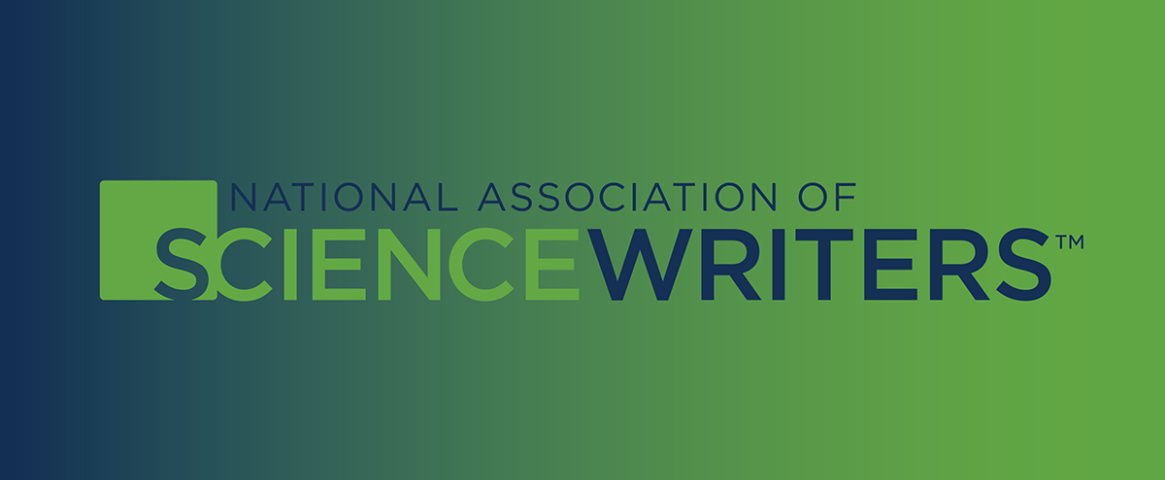The Journalism Committee of the National Association of Science Writers is seeking to fund freelance journalist members who are reporting on or working to develop investigative projects on a science-, environment-, or health-related issue.
We know that finding and researching these kinds of ideas often requires a lot of upfront, unpaid work before a story can be pitched, time that many freelancers can’t afford. This grant is intended to provide seed money to kickstart projects with the goal of supporting important stories that might otherwise remain untold.
Launching this October 2024, the NASW Investigative Reporting Grants will provide $1,000 each, totaling up to three awards this cycle. Funds can be used to support travel, reporting costs, and/or the recipient's time. This opportunity is open to freelance science writers investigating stories that are focused on issues in North America.
Because investigative work involves rabbit holes, dead ends, data crunching, and relationship-building, applicants do not necessarily need to demonstrate interest in the story from an editor or publication. However, we ask that you suggest at least one or two publications that you have in mind, and demonstrate relevant experience or relationships with publications that you might be able to approach. We also ask for a progress report within three months after receiving the grant to explain how you have used the grant and how it has helped you.
We request that selected recipients notify NASW upon publication, and indicate in the published piece, if possible, or in their portfolio, that it was supported in whole or part by an NASW Investigative Reporting Grant.
Applications are due on Nov. 18, 2024, by 11:59 PM Eastern Time. Grant recipients will be notified in January 2025. For questions, please contact NASW Journalism Committee co-chairs Betsy Mason and Emily Sohn and Investigative Reporting Grants project coordinator at journalism@nasw.org.
Who is eligible to apply?
- Open to any journalist with demonstrated experience writing in-depth or investigative stories, who is planning a freelance reporting project about a science-related topic.
- We encourage applications from people with diverse backgrounds and from people looking to cover diverse or overlooked communities.
- NASW membership not required.
To apply, please visit THIS FORM and provide the following:
- A 300-word description of the proposed project highlighting its particular challenges, such as time or travel.
- A brief description of your project’s budget.* Outline how and when you expect to spend the grant money.
- Up to three publications that might be interested in the story, highlighting three editors you have working relationships with. We are simply looking for an indication that the proposed story has a good chance of being published.
- Three examples (links) of published work from each applicant in the last year, highlighting clips that illustrate the kind of story you are hoping to do and your ability to do it. These clips do not need to be science-related.
*Here’s what a budget and timeline might look like:
Estimated budget
- $600 Travel expenses to meet with X researcher who studies Y subject (broken down by flight, rental car, hotel, etc.). April 2024
- $200 X hours of my time to do Z. April-May 2024
- $100 Books and other reference materials to understand the history of Y issue. April 2024
- Total: $1,000
Proposal Instructions
Please create a Submittable account and access the NASW Investigative Reporting Grant portal to complete your proposal. You can preview the information needed on the form and also save and return. Proposals are due Nov. 18, 2024, 11:59 PM Eastern Time. Grant recipients will be notified by late January 2025, 2024.
Frequently Asked Questions
What is the grant application timeline?
Proposals are open now through the NASW Submittable portal, which will close on Nov. 18 at 11:59 PM Eastern Time. The Journalism Committee will make its selections by Dec. 15, 2024, and grantees will be notified and asked to sign administrative paperwork in early January 2025.
Can I apply as a team?
We always encourage collaborative projects, and we especially encourage investigative reporters skilled in other beats to translate their skills to science reporting by partnering with an NASW member. However, the maximum award per project remains $1,000, regardless of team size.
I am not a U.S. citizen / I don’t reside in the U.S., but can I still apply?
You do not need to reside in the U.S., but as we pilot this grant, the project you are proposing must be focused on stories and issues in North America or that affect a North American-based audience.
If selected, when will I receive my funds?
$800 will be disbursed upon receipt of a signed award agreement. The remaining $200 will be disbursed once a project report has been submitted. NASW reserves the right to disqualify any entry or revoke an award if NASW determines, in its sole discretion, that an entrant has taken actions that undermine, or are intended to undermine, the legitimate operation of the program; or that an entrant has engaged in, or is the subject of investigation of claims of, fraud, harassment, unlawful conduct, or any other act that is inconsistent with the purpose of this program or with any NASW policy, including but not limited to NASW’s Code of Ethics, Code of Conduct, and Operating Principles.
Will I have to pay taxes on my grant?
Since individual situations vary, we cannot offer tax advice. We file 1099-NEC forms file as appropriate.Grantees should consult their own tax professional services in reporting their income.
The NASW Journalism Committee is chaired by NASW member volunteers Betsy Mason and Emily Sohn. Contact them at journalism@nasw.org
Founded in 1934 with a mission to fight for the free flow of science news, NASW is an organization of ~2,400 professional journalists, authors, editors, producers, public information officers, students and people who write and produce material intended to inform the public about science, health, engineering, and technology. To learn more, visit www.nasw.org and follow NASW on LinkedIn and Bluesky. And join us in celebrating #NASW90th.


